Mabo Library History, Architecture and Awards
- Future Students
- JCU Global Experience
- International Students
- Open Day
- How to apply
- Pathways to university
- Living on Campus
- Courses
- Publications
- Mature students
- Scholarships
- JCU Families
- JCU Heroes Programs
- Aboriginal and Torres Strait Islander in Marine Science
- Elite Athletes
- Defence
- AI@JCU
- Current Students
- Student Ambassador Program
- Updates to JCU Email Security
- New students
- JCU Orientation
- LearnJCU
- Placements
- EDQS
- Unicare Centre and Unicampus Kids
- Graduation
- Off-Campus Students
- JCU Job Ready
- Safety and Wellbeing
- JCU Prizes
- Professional Experience Placement
- Employability Edge
- Art of Academic Writing
- Art of Academic Editing
- Careers and Employability
- Student Equity and Wellbeing
- Career Ready Plan
- Careers at JCU
- Partners and Community
- Alumni
- About JCU
- Reputation and Experience
- Chancellery
- Governance
- Celebrating 50 Years
- Academy
- Indigenous Engagement
- Education Division
- Graduate Research School
- Research and Teaching
- Research Division
- Research and Innovation Services
- CASE
- College of Business, Law and Governance
- College of Healthcare Sciences
- College of Medicine and Dentistry
- College of Science and Engineering
- CPHMVS
- Anthropological Laboratory for Tropical Audiovisual Research (ALTAR)
- Anton Breinl Research Centre
- Agriculture Technology and Adoption Centre (AgTAC)
- Advanced Analytical Centre
- AMHHEC
- Aquaculture Solutions
- AMHRA
- ARCSTA
- Lions Marine Research Trust
- Australian Tropical Herbarium
- Australian Quantum & Classical Transport Physics Group
- Boating and Diving
- Clinical Psychedelic Research Lab
- Centre for Tropical Biosecurity
- Centre for Tropical Bioinformatics and Molecular Biology
- CITBA
- CMT
- Centre for Disaster Solutions
- CSTFA
- Cyclone Testing Station
- The Centre for Disaster Studies
- Daintree Rainforest Observatory
- Fletcherview
- JCU Eduquarium
- JCU Turtle Health Research
- Language and Culture Research Centre
- MARF
- Orpheus
- TESS
- JCU Ideas Lab
- TARL
- eResearch
- Indigenous Education and Research Centre
- Past Course and Subject Handbooks
- Estate
- Work Health and Safety
- Staff
- Discover Nature at JCU
- Cyber Security Hub
- Association of Australian University Secretaries
- Services and Resources Division
- Environmental Research Complex [ERC]
- Foundation for Australian Literary Studies
- Gender Equity at JCU
- Give to JCU
- Indigenous Legal Needs Project
- Inherent Requirements
- IsoTropics Geochemistry Lab
- IT Services
- JCU Webinars
- JCU Events
- JCU Motorsports
- JCU Sport
-
Library
- Your Library Account
- Find
- Learn
- Services
- I am a
- Special Collections
- About
- A-Z
- Mabo Decision: 30 years on
- Marine Geophysics Laboratory
- Office of the Vice Chancellor and President
- Outstanding Alumni
- Planning for your future
- Policy
- PAHL
- Queensland Research Centre for Peripheral Vascular Disease
- Rapid Assessment Unit
- RDIM
- Researcher Development Portal
- Roderick Centre for Australian Literature and Creative Writing
- Contextual Science for Tropical Coastal Ecosystems
- State of the Tropics
- Strategic Procurement
- Student profiles
- SWIRLnet
- TREAD
- TropEco for Staff and Students
- TUDLab
- VAVS Home
- WHOCC for Vector-borne & NTDs
- Media
- Copyright and Terms of Use
- Australian Institute of Tropical Health & Medicine
- JCU Respect
- Pay review
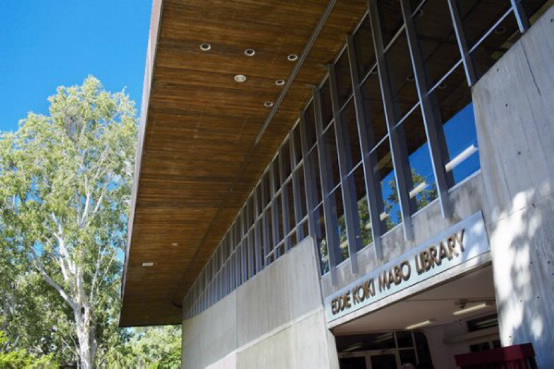 The Eddie Koiki Mabo Library, James Cook University is a landmark and building of the Bebegu Yumba Campus (in Townsville), designed by the prominent Queensland architect James Birrell.
The Eddie Koiki Mabo Library, James Cook University is a landmark and building of the Bebegu Yumba Campus (in Townsville), designed by the prominent Queensland architect James Birrell.
The Mabo Library is an architectural icon. Designed in the Brutalist architectural style of the late 1960s, it is a building that made brilliant use of reinforced concrete to achieve an outstanding aesthetic result.
The three-storey, 10,460 sq m building is currently home to the University's library and special collections and to the Library & Information Services and Learning, Teaching & Student Engagement directorates.
The Mabo Library Special Collections holds some items in our Library archival holdings related to the architect James Birrell.
Library Building Timeline
1968
Stage I of the library building completed by architect James Birrell.
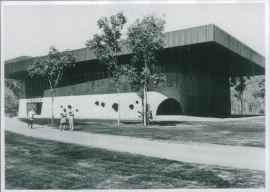
1976
Stage II completed
1990
Extension completed.
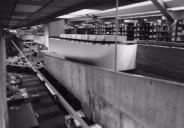
2005
James Birrell wins Australia's most prestigious architectural prize - the Royal Australian Institute of Architects Gold Medal.
2006
The JCU Library Building on the Townsville Campus receives the 25 Year Architecture Award presented by the Royal Australian Institute of Architects - Queensland Chapter.
2008
On 21st May, in honour of Eddie Koiki Mabo, James Cook University named its Townsville Campus Library the Eddie Koiki Mabo Library.
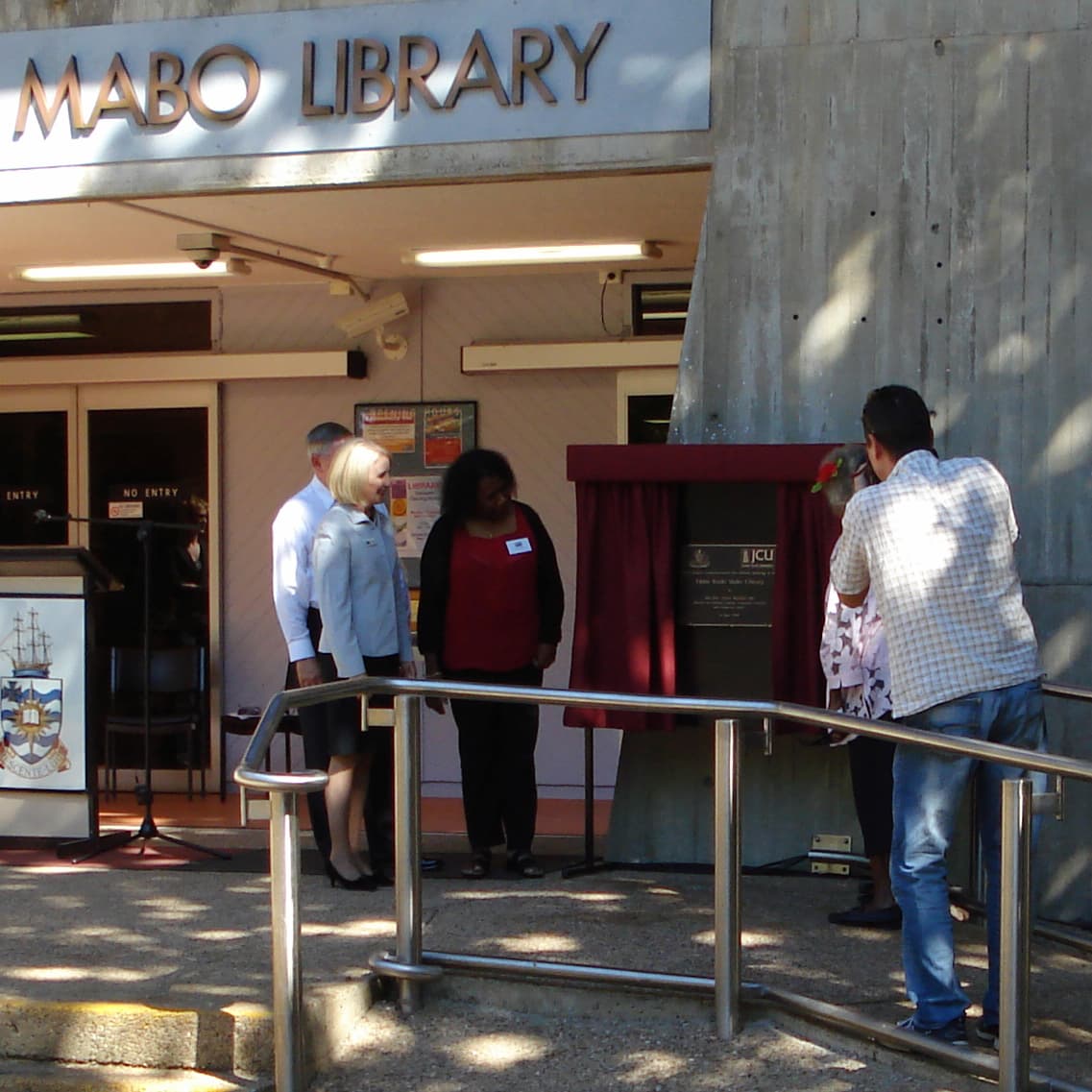
2010
A library redevelopment project is announced, funded by the University and the Federal Government's Better Universities Renewal Funding Initiative, to provide more vibrant and contemporary learning spaces in the Mabo Library.
2012
Brewster Hjorth architects transformational renovations to the ground floor of Mabo Library are completed.
Phase one is completed in February and some of the new features included: a one-stop service desk including Library InfoHelp and Learning Advice, Learning Commons with computers and Wi-Fi, southern entry/exit, café, Assistive Technologies lab and new staff areas and consultation rooms.
In July a new 24 hour Information Commons is, providing Wi-Fi, PC and Mac computers, colour and B&W copying and printing, drink and snack machines, free student lockers with power, group and individual seating, and access to toilets. Three new iLecture rooms are adjacent to the Information Commons. Designed for group study and interactive learning, when not booked for teaching, students are able to use the rooms for quiet study.
Project Description from Brewster Hjorth Architects
The talented students of the Bachelor of Multimedia Journalism also produced a video about the project
JCU Eddie Mabo Library Upgrade
2014
Eddie Koiki Mabo Library building is included in the places of cultural heritage value list by Townsville City Council.
2015
In January the outdoor seating area at the NW Café entrance is opened where students, staff and visitors can enjoy their coffee, gelato and other goodies from Juliette’s near the wonderful Heart Space and Collections sculpture by Col Henry. The outdoor space includes tables and access to power and JCU Wi-Fi (Eduroam).
In February the new purpose-built service centre for AccessAbility, servicing students with disabilities and health conditions, is completed.
In November the student kitchenette is opened. Located on the NE corner of the Mabo Library, outside of the 24hr Information Commons, with 24 hour food preparation facilities including 2 microwaves, sink, bench and instant hot/cold water. Funded by Student Services Amenities Fees.
2017
New outdoor furniture is added to the kitchenette as part of the completed Verandah Walk project.
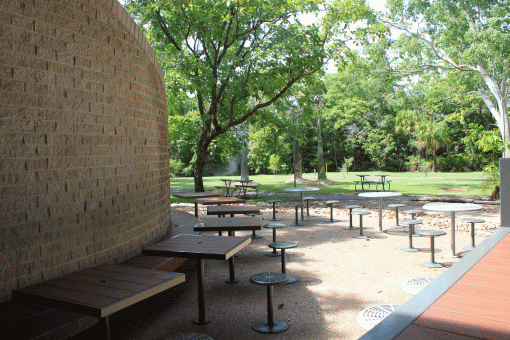
2018
Eddie Koiki Mabo Library building is recognised as one of Australia's top ten iconic architectural sites by the University of Melbourne's top architectural experts.
2019
Eddie Koiki Mabo Library building is recognised as one of Australia's top ten concrete public architectural works by Cement Concrete and Aggregates Australia.
2020
In 2020, the Mabo Timeline Interpretive Wall is unveiled as part of JCU's 50th anniversary celebrations. The Interpretive Wall, located on the ground floor of the Eddie Koiki Mabo Library near the Cafe Entrance, show cases important events from Eddie Mabo's timeline and the University's timeline, and honours the Bindal Country on which the Library Building is situated. The Interpretive Wall is accessible whenever the Library Building is open, and can be seen online at the link above.

2021/2022
The northern section of the top floor and parts of the first floor are renovated to create improved student study spaces.